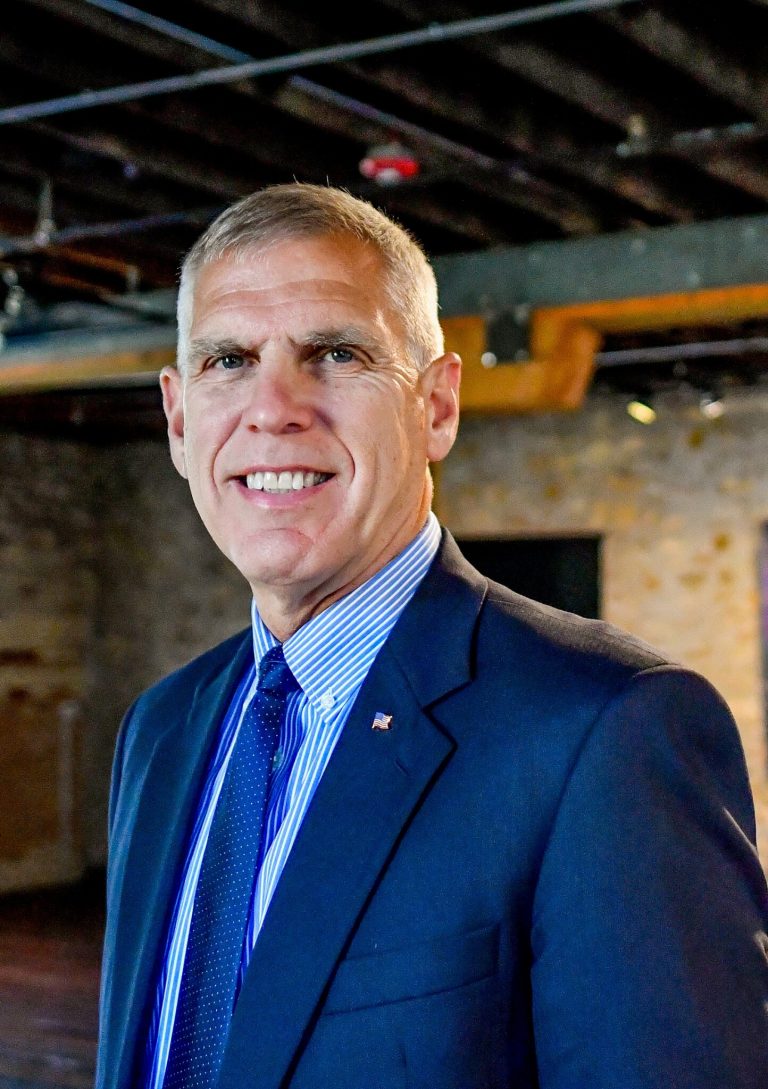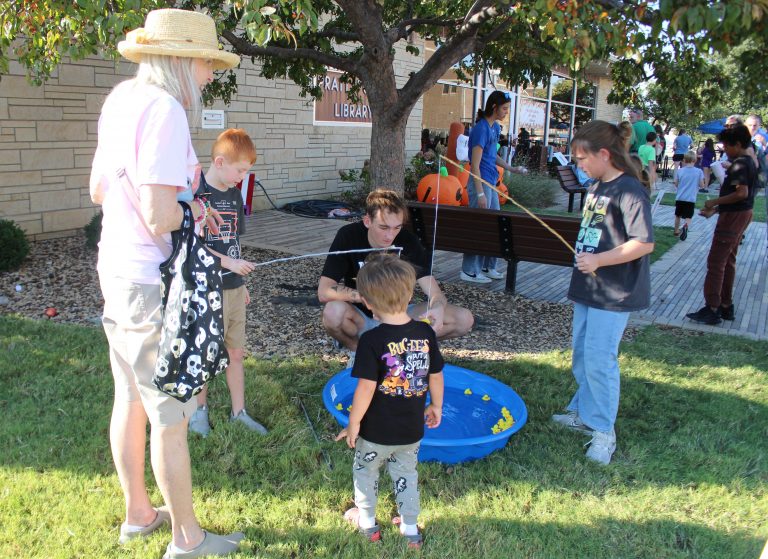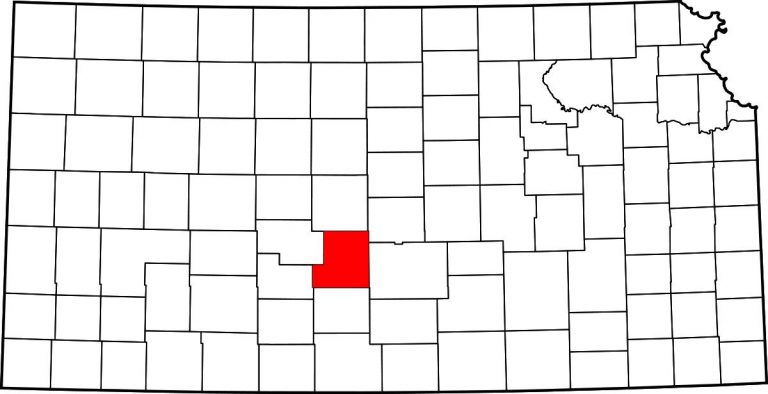By Eric Killough
Freelance Writer
Special to the Tribune
General Vic Braden, who may be more well-known locally as grandpa, or friend, is a decorated veteran with an Army Distinguished Service Medal for exceptionally meritorious service. The Pratt born and raised native also earned the Legion of Merit for outstanding conduct and achievement, and two Bronze Star Medals for heroic or meritorious achievement in a combat zone. His life is one to highlight as the nation celebrates independence and freedom on 4th of July.
A retired deputy attorney general who spent years as leader of the Criminal Division of the Kansas Attorney General’s Office, Braden is also well known from his position as a 2-star general (retired) in the U.S. Army representing the Kansas National Guard. He speaks regularly at local Memorial Day and Veteran’s Day services and has built a life on values instilled in his youth which included honesty, hard work, and serving the greater good.
“For the men in my family, military service was a tradition,” Braden said. “My dad and uncles all served in World War II, and one uncle was a career soldier with multiple tours in Vietnam. My two brothers were 11 and 10 years older than me. They both served in the military in the late 1960s and early 1970s, one with a tour in Korea and the other with a tour in Vietnam. Therefore, when I reached the age of majority, it was a given that I would serve. That tradition coupled with international events in the fall of 1979—the Iranian hostage crisis, the Soviet invasion of Afghanistan, and the Grand Mosque seizure, made military service a given for me.”
Braden continued, “After graduating from Pratt Community College (PCC), I wanted to continue toward a bachelor’s degree and also wanted to join the military. At the time, going to a big university (KU, KSU, or WSU) seemed overwhelming to me. Therefore, I looked for a university or college that was smaller and still close to Pratt with a Reserve Officers’ Training Corps (ROTC) program. Northwestern Oklahoma State University (NWOSU) had an Army ROTC program at that time. NWOSU met all of the criteria—smaller university, close to Pratt, and a ROTC program. In the spring of 1982, two years after graduating from PCC, I was commissioned into the United States Army.”
Discussing his rise through the ranks Braden shared, “My second-grade teacher wrote in my report card, ‘good attitude, but is very slow.’ That statement has been consistent throughout my life. I read slow, talk slow, walk slow, etc. However, my slowness has over my lifetime been a gift. This attribute has allowed me to absorb ideas, and concepts, in depth. My military career is an illustration of this trait. After my commission in 1982, I achieved the rank of Captain on time—3 years. However, getting promoted to Major was a different story. Normally, after six years as a Captain, you are promoted to Major. For me, it took nine years. However, those extra three years gave me time to get “sets and reps” in various staff positions at the battalion level. This experience proved invaluable after getting promoted to Major and being assigned the Executive Officer (XO) of an aviation battalion. The XO supervises the staff positions within a battalion. Because I had a history of extended time in those positions, I was able to orchestrate the interplay between and among the staff with effectiveness. After five years, based on my success as an XO, I was promoted to Lieutenant Colonel and selected for command of the same aviation battalion. During that command, 911 happened and the focus of the military changed from a peacetime to a wartime Army. My skills seemed to fit well into that new role, preparing units for combat, deploying units, and conducting operations in a combat zone. Therefore, I was promoted to Colonel in 2005, with an additional command at the brigade level. By 2010, I was nominated for and confirmed as a Brigadier General. I spent the remainder of my career (nine years) in the General Officer ranks, with a final assignment as the Commanding General, 35th Infantry Division.”
One such opportunity for Braden to exercise his leadership was while deployed to Bosnia Herzegovina during the early 2000s. Braden recalled, “I was an aviation battalion task force commander in Bosnia from August 2002 to July 2003, with a fleet of UH-60 Blackhawk helicopters and AH-64 Apache helicopters. It was a composite task force made up of elements from Texas, Kansas, Oklahoma, and Vermont. From an organizational vantage point, the biggest challenge was getting those diverse units to work toward a common objective. From a broader perspective, this deployment was the first time that I worked extensively with NATO Allies, conducting operations with military units from Germany, Italy, Poland, and Turkey. Most of our missions were in the southern part of Bosnia in the Mostar area with Italian and German units, all excellent outfits.”
Asked how his military service changed him as a person and a leader Braden offered, “I believe that the fundamental character development occurs by the time you enter elementary school, with a sense of industry, moral development, social skills, and risk-taking occurring from K-12. All of that forms your basic personality by the time you are 18 years old. So, I don’t think the military changed me as a person. However, it did provide me with a legion of opportunities. The military gave me a chance to travel. Growing up in Pratt, my world extended generally to Wichita, the Oklahoma border, Dodge City, and Great Bend. Everything beyond that area was “foreign territory.” However, the military took me to various areas of Asia and Europe, and numerous locations across the USA. With this travel, I was exposed to different cultures that expanded my view of the world. In addition, a key aspect of military service for me was the shot at promotion based on merit. Leadership, in my view, is a lifelong process of development through a synthesis of education, training, and life experience. During my four decades of military service, each of these areas provided building blocks for me as a leader.”
Leadership development is a common theme that Braden discusses. “As a company grade officer (Lieutenant to Captain), there were non-commissioned officers that helped me build excellent combat-ready teams, “Braden said. “As a field grade officer (Major to Colonel), expanding my world of contacts helped me grow as a leader. Those business and political leaders that I met and got to know during my year at The Harvard School of Government expanded my way of thinking as to problem-solving at a macro-level. As a general officer, I worked for numerous 3 and 4-star officers, and senior political leaders, that were great strategic thinkers. These leaders helped me view the world as an interconnected economic and security network that requires in-depth critical decision making.”
Combat decision making is a skill unto itself. Retired U.S. Army Major, and Iraq War veteran Aaron Squiers shared, “Being an officer is a great responsibility. People’s lives are literally dependent on you making good decisions. It’s very serious and I never took that lightly. I had to make decisions that put people in life threatening danger.”
Piggybacking on that Braden said, “Concerning combat missions, I felt that I accomplished those missions while mitigating risk as much as possible. I never sent any soldiers or myself out on a mission where I didn’t mitigate the risk to a point where there was at least a 50% chance of returning unharmed.”
Concerning his route to becoming a deputy attorney general for the State of Kansas Braden explained the path. “I left active duty in 1993 and decided to pursue a master’s degree using my GI Bill. One year into obtaining that degree, I began exploring further education opportunities to use my remaining GI Bill. By then, I was a member of the Kansas National Guard. Opportunities within the Guard, combined with the GI Bill, allowed me the financial ability to continue down the education path. Based on discussions with several National Guard officers that were also attorneys, and my own research, I decided to take a shot at law school. From my vantage point at the time, a law degree provided various career path opportunities that other post-graduate degrees did not.”
From 2010 to 2024 Braden was the leader of the Criminal Division of the Kansas Attorney General’s Office. This division prosecuted cases involving homicides, child sex crimes, and illicit drug distribution and manufacturing crimes across the State of Kansas, mostly in counties of 10,000 or less. The process involved Braden being contacted by a county attorney asking that he take a case. If that case met the Attorney General’s criteria, and if Braden had the prosecutorial capacity, he would accept it. His specific duties were three-fold. First, Braden oversaw the litigation of the cases and personally prosecuted most of the capital murder cases. Second, Braden would build professional relationships with county prosecutors and law enforcement leaders, state law enforcement, and federal law enforcement.
“I did this mainly by driving around the state and personally visiting with the county attorney,” he said. “Through this process, I was able to build a network of trust and get an understanding of each region’s crime trends and challenges.”
Braden routinely spoke across the state to civic groups, bar associations, etc. about the capability of the Criminal Division. The duality of being a military officer and having a career as a state prosecutor were mutually beneficial.
“Each profession complimented the other. My military background helped me build a legal case in an organized manner, stay on task, and meet deadlines. I looked at each case as a mission—build toward readiness, then execute with effectiveness and efficiency. My legal background helped me frame a military problem encountered or mission given with a logical and layered approach. It also helped me convey clearly and concisely, verbally and in writing, the objectives and purpose of a mission,” he said.
Now in “a professional pause” Braden is back in Pratt County with wife Marla and as busy as ever.
“Marla grew up right outside of Sawyer, and is a 1979 graduate of Skyline High School and 1981 graduate of PCC,” he said. “Through the years, we have remained connected to the Pratt community, despite living in various parts of the world during my military career. Currently, Marla and I manage the farm properties that she inherited from her parents. In addition, we think it is important for our grandchildren to know their heritage. Therefore, our grands spend considerable time at the farm, especially in the summer months.”
One of the opportunities Braden has accepted since retiring is a seat on the Pratt Public Library Board of Directors. Braden shared his thoughts about serving on the library board and discussed his views on libraries, particularly rural libraries. Braden said, “I am grateful for the opportunity to serve. I feel that I can provide some perspectives based on life experiences that will be beneficial to ensure that the Pratt Public Library remains a vital part of the community. When visiting County Attorneys at their offices during my tenure as the Deputy Attorney General, I would usually arrive at the county seat 30-45 minutes early. I typically would stop by the local library, sit down for a while, and use the library’s internet service to check office emails. I probably visited 75 or so county seat libraries (most serving a population of 10,000 or less).
Through that experience, I began to realize the value of these libraries as community hubs for all ages. I found local library directors to be innovative and creative in meeting that needs of the town and surrounding areas. From my vantage point, rural libraries in particular, with solid leadership, are going to thrive in the future, as those facilities act as a communal hub through the transition to an Artificial Intelligence/Nanotechnology/Robot environment.”
Reflecting on a life spent in public service Braden had these thoughts and bits of advice, “Concerning leadership, I will convey to my grandkids that leadership is a tough and lonely business at times. It doesn’t just happen, it takes time to build leaders through life experience, training, and education. As for duty, I don’t look at it as exclusive to the military. In reality, every citizen in America has a duty to build on the ‘3 Cs’—build intellectually Competent leaders of Character that thrive in Complexity.”
Braden closed, “Our five grandchildren are the focus of attention at this point in our lives. God willing, I am not done yet. However, I do think that at some point in one’s life it is no longer about what one accomplished, it is about the legacy left behind.”
General Braden’s service includes command of the 35th Infantry Division at both Fort Leavenworth, Kansas, and Camp Arifjan, Kuwait. He also served as Senior Advisor to the 205th Afghan National Army Corps in Kandahar, Afghanistan, and Task Force Commander for the 1st Battalion, 108th Aviation Regiment in Tuzla, Bosnia and Herzegovina.
General Braden’s training includes the Rotary Wing Aviator Course at Fort Rucker, Alabama; Harvard University’s Senior Executives in National and International Security (SENIS) program; and a Senior Service College Fellowship at Harvard. His academic credentials include an AS in Political Science from Pratt Community College, a BS in Business Administration from Northwestern Oklahoma State University, an MA in Public Administration from the University of Kansas, and a JD from Washburn University School of Law.




